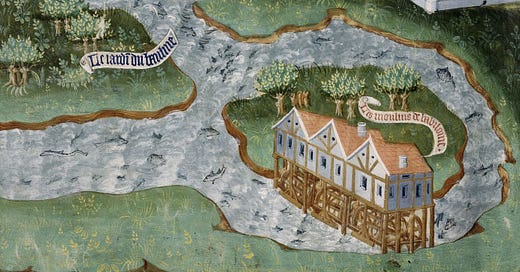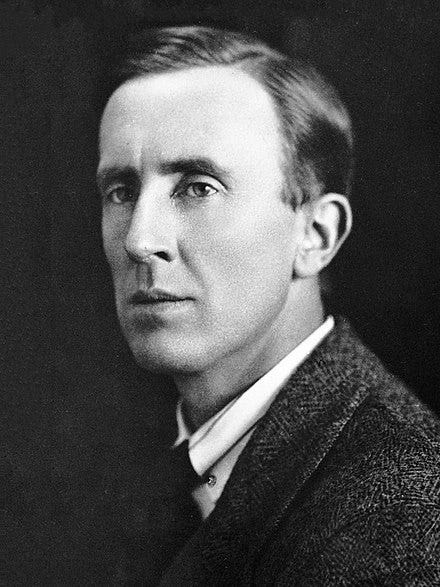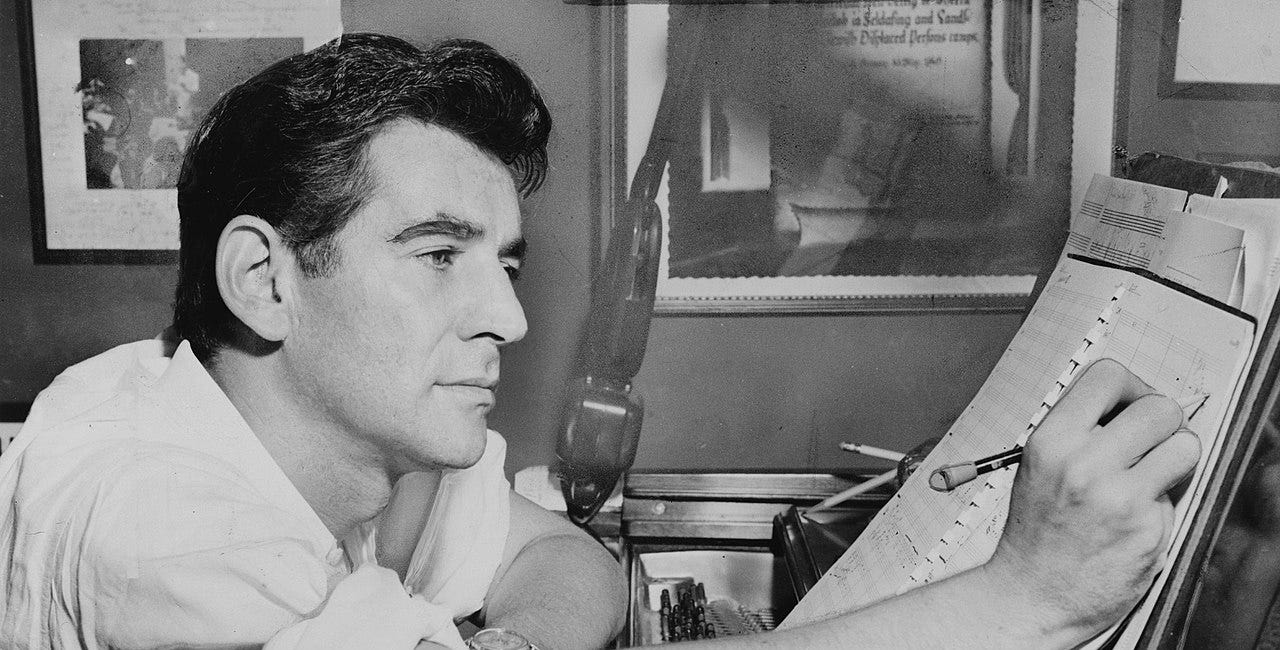Dear Reader,
Today’s Bird-Bolts post is a bit different. Since I have been traveling, working on my syllabus, and writing this newsletter, I haven’t had the time to accumulate too many new reading and listening recommendations. Also, I don’t want to revise the Rotation playlist just yet, because I want to give listeners some more time with the Bernstein selections. (In fact, I’m thinking of making the Bernstein an independent playlist and leaving it there permanently. Let me know if you would like this.)
For those of you who are new here (since there have been a bunch of new subscribers in the past couple of weeks): Bird-Bolts and Cannon-Bullets is the weekly post where I give you a roundup of book and music recommendations, and I link to the weekly Rotation music playlist. In the past, this post has been reserved for paid subscribers, but it is now available for all to read.
Today, instead of the usual roundup, I would like to tell you a bit about the graduate course that I am teaching this semester, because it has inspired the Beowulf and LOTR reading challenges, as well as a series of forthcoming posts on “Medieval Ecologies.”
1. Medieval Ecologies from Beowulf to Tolkien
I’ll get this out of the way first: Wait! (You may protest) Tolkien is not a medieval writer! How can you get away with a course like this?
You caught me, dear reader. Tolkien was born in 1892 and, therefore, is not a medieval writer. He was, however, a professional medievalist, and his scholarship greatly informed and shaped his work in a number of ways. By including him here, we get away from these artificial demarcations of time and allow ourselves to trace literary influence across eras. Also, we will begin the semester by considering Tolkien’s evaluation and analysis of Beowulf, which is, perhaps, the most influential piece of scholarship that anyone has written about the poem.
Finally, when I put “Tolkien” in the course title, I can rest assured that it will be fully registered.
By the way, if you would like to read my essay about how Tolkien’s work combines medieval and modern influences, you can find that here:
Tolkien and Vaughan Williams Meet on a Train
Dear Reader, I’m traveling to a conference this week to give a paper, and so I’m changing my publishing schedule slightly. Usually, my weekly roundup for paid subscribers drops on Friday morning, but this week that will appear on Sunday instead. Today I’m reprising one of my early posts from the days when I had only a few subscribers, so I’m betting that…
2. Why Ecologies?
This is the other question that you might be asking. After all, isn’t ecology a modern concept? Well, yes and no. It is a modern, convenient term for how we think about space, place, environment, setting, as well as how all of the things in that a space (alive or not) interact. Most literary criticism tends to be character driven, which is fine, but it can help us think about texts in new ways if we decenter the human and consider the treatment of space and the ways in which it shapes and is shaped by culture. We are, after all, part of the ecology; we are not separate from it.
With this ecological perspective in mind, I have organized the reading thematically this semester, according to spatial and spatial-cultural categories. Here is a simplified version of the reading schedule, listing only the primary texts:
Week 1: Across the Whale-Road: Beowulf
Week 2: Hall and Mere: Beowulf, The Wanderer
Week 3: Barrow and Hoard: Beowulf, The Ruin
Week 4: Migration and Mythmaking: Egil’s Saga, The Seafarer
Week 5: The God’s Joyful Road: Egil’s Saga
Week 6: Court and Wilderness: Sir Gawain and the Green Knight
Week 7: Hunt and Chapel: Sir Gawain and the Green Knight
Week 8: Settlement and Gender: The Saga of the People of Laxardal
Week 9: Environment, Feud, Conversion: The Saga of the People of Laxardal
Week 10: Bombadil’s Green World: The Lord of the Rings, Book I
Week 11: Dungeon and Magic Forest: LOTR, Book II
Week 12: Living Landscape: LOTR, Book III
Week 13: Dying Landscape: LOTR, Book IV
Week 14: Landscape of War: LOTR, Book V
Week 15: Hellscape and Restoration: LOTR, Book VI
I will discuss these texts in more detail as we go through the semester. For the moment, suffice to say that each of these selections presents ecology in interesting and revelatory ways, and even if what we value most in literature is character, then our sense of character is enriched by considering it in this ecological context.
Many of you will be joining along for the Beowulf and LOTR challenges, but we will be discussing the other texts as well. At least a couple of my Wednesday essays will consider the sagas. And my graduate students will be writing about all of these texts in the Substack newsletters that they will be creating for this course. Each Sunday, I will link to one of them and their discussion of the readings of the week.
For information on the challenges, see this post:
Canonical Resolutions
My year doesn’t begin in January. I’m on the academic calendar, so the year for me begins in the second half of August and runs through the beginning of May. The rest of May through early August constitutes an amorphous time known as “summer,” when I’m supposed to be doing resear…
For information specifically on the Beowulf challenge, see this post:
Awaiting a Barbarous Burning
Welcome to PCF in 2024! As I announced on New Year’s Eve, it is going to be a year of reading challenges, beginning next week with Beowulf. What do you need to do to prepare? That’s what today’s post is all about. Which Edition/Translation? I recommend the Norton Critical Edition of Seamus Heaney’s translation of the poem, edited by Daniel Donoghue (pictu…
(Information on the LOTR and Emma challenges will be forthcoming as those dates approach.)
So that’s what my semester looks like. Any comments or questions are, of course, welcome.
3. A Note on The Rotation
For those of you who are new, here is the link to The Rotation Playlist on Apple Music:
The Rotation from Personal Canon Formation
Last week’s Bird-Bolts post was all about the Leonard Bernstein selections on the playlist. You may read that here:
Bird-Bolts and Cannon-Bullets XXI
This is the final Bird-Bolts edition of 2023, free this week for all to read. On New Year’s Eve I’ll announce some plans for 2024, including a new series on the free tier and some interesting new features (and challenges!) for paid subscribers.
That’s it for today. I’ll be back on Sunday with the Stack of the Week and next Wednesday for the start of the Beowulf Challenge.
Thanks for reading, from my fancy internet typewriter to yours.










I’ll read the post later. For now, just wanted to say PLEASE make the Lenny playlist permanent!
I would absolutely sign up for that class! And I would love a permanent Bernstein playlist.